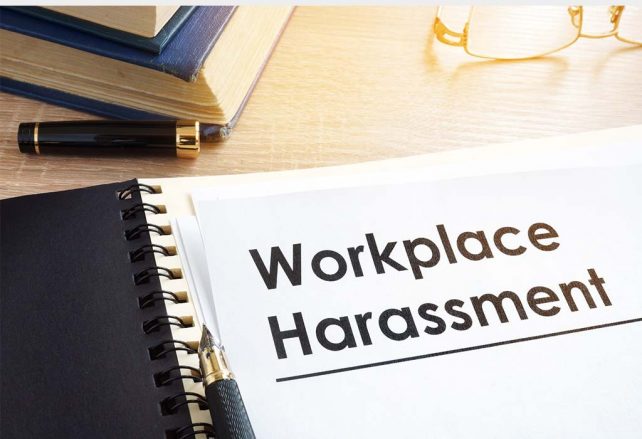
Three of the six countries that have ratified the Violence and Harassment Convention, 2019 (No. 190) belong to the region. In June 2020, Uruguay was the first country in the world to ratify, followed by Argentina and Ecuador. “The region has the opportunity to maintain its leadership in the ratification of conventions in the ILO’s normative system,” said the highest regional authorities of the ILO and UN Women.
“Violence and harassment are unacceptable anywhere and at any time, but now we must be more alert than ever, as the risk of violence is greater in times of crisis: the COVID-19 outbreak has been a sad reminder that this can happen. Frustration, economic pressure, and stress can be triggers for violence, with more risks for working women. In addition to being a serious violation of rights, violence has negative impacts on employment, working conditions and productivity,” said ILO Director for Latin America and the Caribbean, Vinícius Pinheiro, referring to the importance of this Convention.
“One of the first things to disappear as a result of the pandemic was female employment, because of the impact it had on areas that tend to employ mainly women, such as commerce, hospitality and services. Those who kept their jobs were exposed to labour violence that is often invisible, for example, in domestic work; healthcare workers -most of them women- were exposed to violent attacks and harassment at work and in transportation. Convention 190 not only promotes safe workplaces, but also recognizes that domestic violence affects women’s participation in the world of work, their productivity, their access to employment and their health. In our vision of ‘building back better’, women’s work is fundamental: the broad and comprehensive definition of this Convention should be a commitment for countries to address this injustice and put women at the center of their post-COVID recovery measures,” said UN Women Regional Director for the Americas and the Caribbean, María Noel Vaeza.
Convention 190 introduces a number of important innovations. For the first time, it clarifies what is to be understood by ‘violence and harassment in the world of work’ and spells out what measures should be taken to prevent and address it, and by whom.
Its scope is broad: it applies to all persons in the world of work, the environment, and also to all other workers, regardless of their contractual status, as well as to trainees, those doing voluntary work or seeking employment, among others. Persons exercising the authority, functions and responsibilities of the employer are also covered by the Convention.
The Convention is applicable to all sectors of the economy, including the public and private sectors and the informal economy, in both urban and rural areas. Countries that have ratified the Convention undertake to establish mechanisms for prevention and protection, enforcement, remedies and redress, as well as guidance and dissemination.
The Convention affirms that violence and harassment “may constitute a violation or abuse of human rights…a threat to equal opportunity, and are unacceptable and incompatible with decent work,” recognizing that gender-based violence disproportionately affects women and girls.
Latin American women workers are leading the movement for ratification in their countries, recognizing the importance of creating safe work environments free of gender-based violence in order to achieve equity at work.
Countries have one year from ratification for the standard to enter into force at the national level. This deadline allows a tripartite dialogue to be initiated where the State, employers and workers can review national legislation and practice and outline a roadmap for implementing regulatory changes, identifying implementation challenges and, above all, fostering cultural changes for a “zero tolerance” environment for violence and harassment in the workplace.
Argentina, for example, has already begun this process. The government launched an inter-ministerial Roundtable, led by the Ministry of Labour and Social Security, comprising multiple ministries and institutes, and has developed an Action Plan for the implementation of Convention 190 that includes tripartite consultations, the development of a preliminary draft for the implementation of the convention, training, awareness-raising and generation of tools.
“I hope that governments will commit to the Convention, that more countries will ratify it, and that concrete mechanisms will be generated to put an end to violence and harassment at work, which, as we know, disproportionately affect women,” said Ms. Vaeza.
Pinheiro recalled that “the implementation of the measures set forth in C190 drives a human-centered recovery where an environment of respect and dignity is fostered, which is at the core of the concept of decent work.”
In addition to the prominent position on C190, the region has also demonstrated its commitment to the Domestic Workers Convention, 2011 (No. 189), having made 17 of the 32 ratifications counted so far.
Conventions are an essential part of international labour standards, legal instruments drawn up by the ILO’s constituents (governments, employers and workers) to set forth fundamental principles and rights at work and regulate other areas of the world of work.

Disclaimer: The comments posted do not necessarily reflect the views of DominicaNewsOnline.com and its parent company or any individual staff member. All comments are posted subject to approval by DominicaNewsOnline.com. We never censor based on political or ideological points of view, but we do try to maintain a sensible balance between free speech and responsible moderating.
We will delete comments that:
See our full comment/user policy/agreement.